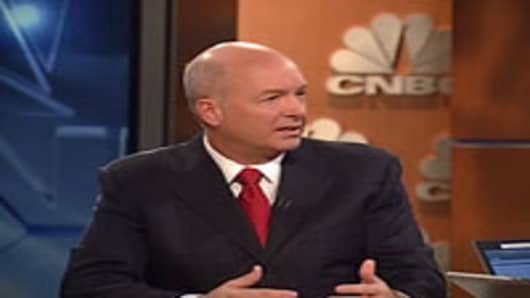—Lubrizol wasn’t on Berkshire’s restricted list;
—He thought there was a mere 5 percent chance that Berkshire would ever buy it.
But the chronology of events, gathered from a Lubrizol proxyand Berkshire Chairman Warren Buffett’s comments about Sokol’s departure, Sokol was making purchases at the same time he was talking to investment bankers about Lubrizol as a possible takeover prospect for Berkshire.
In the very least, according to Berkshire’s “Code of Business Conduct and Ethics,” Sokol should have told Thomas Murphy, the chairman of Berkshire’s audit committee, about the purchases. (You can read the entire Code of Ethics here.)
According to the Code:
"All directors and executive officers of the Company, and the chief executive officers and chief financial officers of Berkshire Hathaway’s subsidiaries, shall disclose any material transaction or relationship that reasonably could be expected to give rise to such a conflict to the Chairman of the Company’s Audit Committee. No action may be taken with respect to such transaction or party unless and until such action has been approved by the Audit Committee."
Furthermore, the Code relates to simple common sense. When in doubt, remember Warren Buffett’s rule of thumb:
“…I want employees to ask themselves whether they are willing to have any contemplated act appear the next day on the front page of their local paper — to be read by their spouses, children and friends — with the reporting done by an informed and critical reporter.”
Never mind lead headlines in the national news!
Finally, the code addresses insider trading:
"Covered Parties who have access to confidential information are not permitted to use or share that information for stock trading purposes or for any other purpose except the conduct of the Company’s business. All non-public information about the Company should be considered confidential information. It is always illegal to trade in Berkshire Hathaway securities while in possession of material, non-public information, and it is also illegal to communicate or “tip” such information to others."
Sokol to Becky Quick: “I didn’t have any inside information.”
My take: That remains to be seen. Even transactions that may seem obvious aren’t necessarily illegal. Insider trading is a murky legal area. In the very least, this was poor judgment. After reading through everything and watching the CNBC interview, I was still shaking my head. What was he thinking?
It would appear Berkshire will have to now probe whether Sokol was purchasing shares in other companies with ties to Berkshire. And while they're at it they need to ask themselves why they don't have stricter personal investment policies for company executives? Berkshire, after all, is largely in the business of making investments. Come to think of it, based on Buffett’s comments over the years, about the only stocks that would be safe for Berkshire execs to buy for their personal accounts are tech companies! As long as Buffett is running the company, he has made it clear he won't buy one.
Questions? Comments? Write to HerbOnTheStreet@cnbc.com
Follow Herb on Twitter: @herbgreenberg
_____________________________
CNBC Data Pages:
______________________________
Disclaimer



